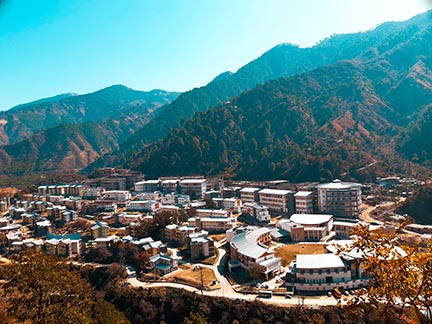MANDI: IIT Mandi researchers have used microwaves and eco-friendly chemicals to recover glass fibers from decommissioned wind turbine blades- a technology that would finally say good bye to present practice of landfills and thermal recycling in India.
The method developed by researchers will lead to a profound shift in recycling technologies which can help the country move towards a circular economy for wind turbine blades.
The developed method is rapid, sustainable, and eco-friendly compared to currently used methods like landfills, thermal based recycling,
The findings of the research have been published in the Resources, Conservation and Recycling Journal.
The research has been led by Dr. Sunny Zafar, Assistant Professor, School of Mechanical and Materials Engineering along with Dr. Venkata Krishnan, Associate Professor, School of Chemical Sciences, IIT Mandi and co-authored by theirstudents Ms Manjeet Rani andMs Priyanka Choudhary.
Dr. Sunny Zafar said, “We have developed a sustainable microwave-assisted chemical recycling (MACR) process to recycle glass fibre reinforced polymer (GFRP) composite waste.
"Also, we used microwaves to aid the chemical degradation of GFRP composites with hydrogen peroxide and acetic acid".
Both hydrogen peroxide and acetic acid are eco-friendly chemicals, the former used extensively as a disinfectant/antibiotic and the latter being vinegar".
While talking about benefits of the research, Dr Venkata Krishnan said, “The recycling method that we have developed can lead to a profound shift in recycling technologies, which can help the country move towards a circular economy for wind turbine blades.”
The researchers found that the decomposition rate of epoxy in our method was 97.2% with recovery of the glass fibers.
The recovered glass fibers were tested, and their properties were compared to those of virgin fibres. The recovered fibers retained nearly 99% of the strength and greater than 90% of other mechanical properties as compared to the virgin fibers.




